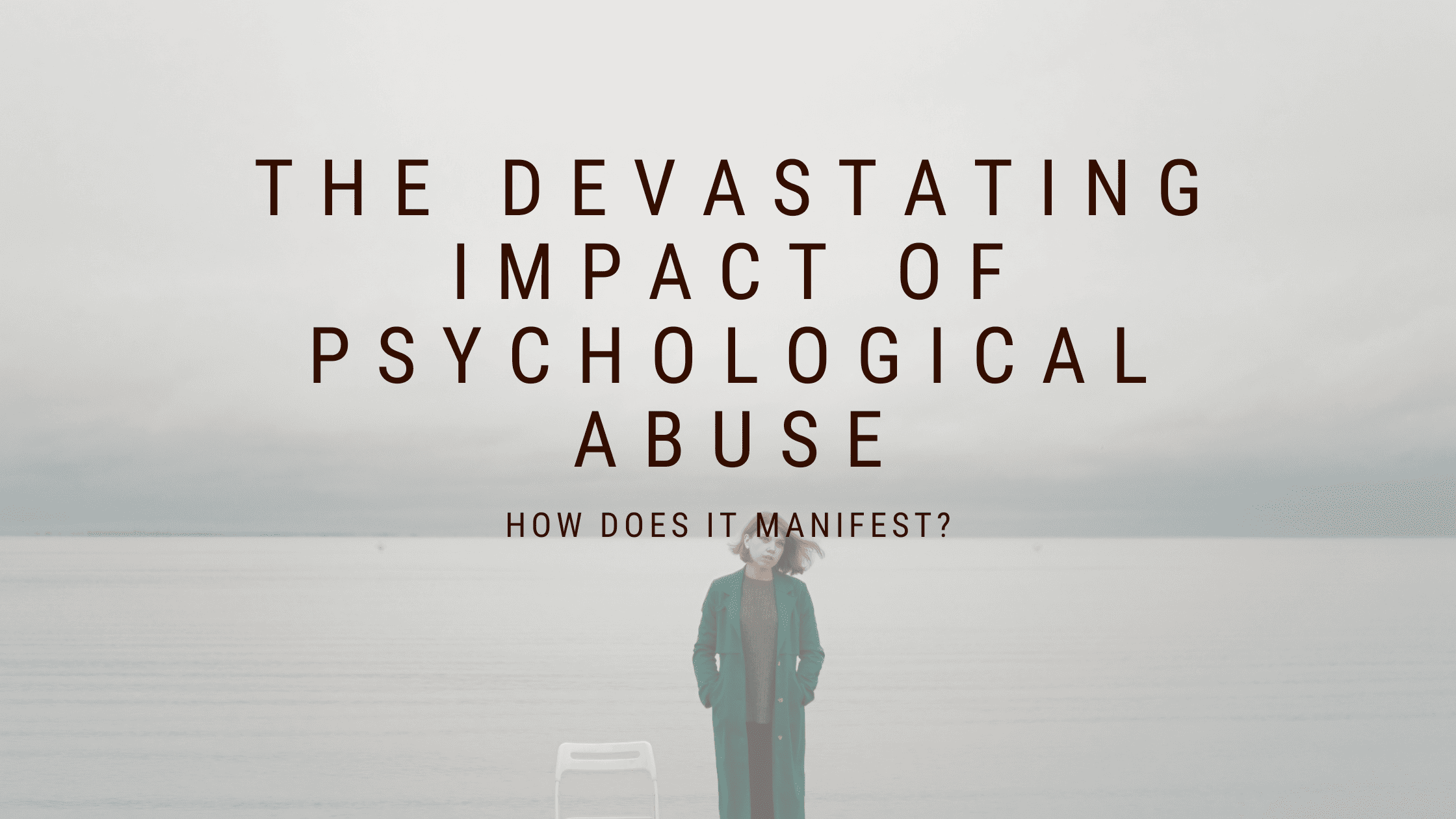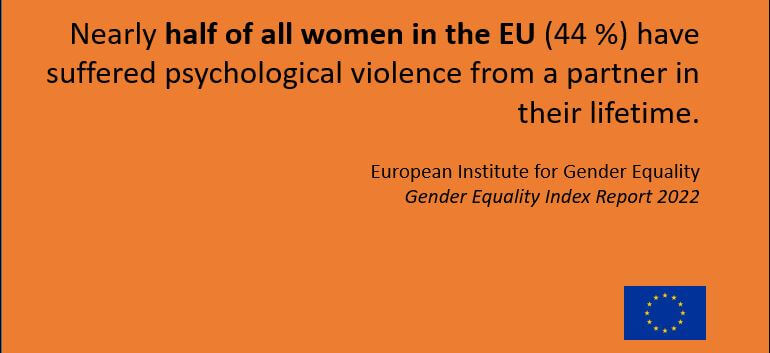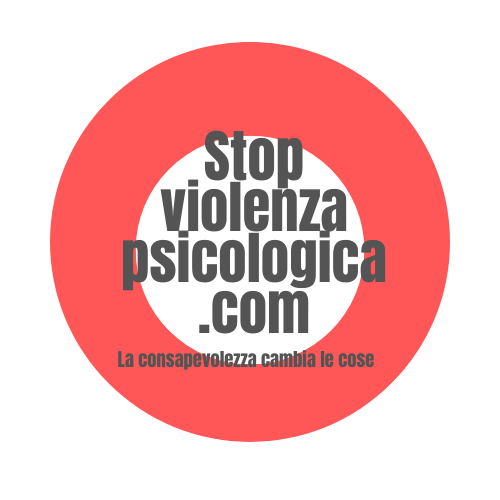Understanding Psychological Violence: 5 Reasons to Never Underestimate Emotional Abuse

Psychological abuse is a deeply damaging form of mistreatment that often leaves no visible scars but inflicts profound emotional wounds.
Often overshadowed by physical abuse, these insidious tactics aim to control, manipulate, and degrade individuals, causing profound damage to their mental and emotional well-being.
In this post, I will delve into the nature of psychological and emotional abuse. I will try to highlight its devastating impact on victims and emphasize the importance of understanding and addressing these forms of abuse.
“It’s often referred to as awareness, but at times, it feels more like a rebirth.”
Grazyetta, Twitter
Understanding Psychological Abuse
Psychological abuse manifests through various insidious tactics employed by the abuser to gain power and control over their victim. Both forms of abuse can occur in various relationships, including romantic partnerships, familial dynamics, and workplace environments.
Legal background and some statistics
Emotional abuse is a type of domestic violence. It is illegal in many American states under various domestic violence laws. In addition, many of the domestic violence laws make reporting emotional abuse mandatory in some cases.
In 2010, the French government criminalized psychological violence in intimate relationships, with the punishable offense carrying a maximum sentence of three years in prison and a €45,000 fine (approximately US $51,345).
In England and Wales, coercive control in intimate relationships became a criminal offense in 2015. In 2018 Scotland also adopted a similar measure.
In Ireland, The Domestic Violence Act 2018 provides new protections for victims of “coercive control,” a type of emotional and psychological abuse aimed at stripping a person of their self-worth and agency.

According to the 2014 European Union Agency for Fundamental Rights (FRA) pan-European survey on violence against women, 43 % of women indicate that they have experienced some form of psychological violence in their relationships, with either their current partner or a previous partner.
How Does Emotional Abuse Manifest?
Emotional abuse encompasses a range of manipulative tactics designed to undermine an individual’s sense of self-worth, erode their confidence, and exert control.
Psychological abuse manifests itself through insults, unfounded accusations, disrespect, lies, blackmail, and control of personal freedom, and involves such tactics as:
- gaslighting,
- belittling,
- humiliation,
- isolation,
- intimidation, and
- constant criticism.
It aims to undermine the victim’s sense of self-worth and erode their confidence. Emotional abuse, in particular, revolves around manipulating the victim’s emotions through tactics like:
- withholding affection,
- silent treatment,
- threats, and
- emotional blackmail.
What Is the Impact Psychological Abuse Can Have on Its Victims?
Despite its subtlety, psychological abuse should never be underestimated or overlooked. Psychological abuse can have severe and long-lasting effects on the victim’s mental health and overall well-being.
Victims often experience anxiety, depression, post-traumatic stress disorder (PTSD), low self-esteem, and a distorted self-image. The constant emotional turmoil and manipulation can lead to a sense of powerlessness and an inability to trust oneself or others.
The trauma inflicted by psychological abuse can permeate all aspects of a person’s life, impacting their relationships, work performance, and overall quality of life.
5 Reasons to Never Underestimate Psychological Abuse:
#1 The invisibility of the Wounds:
Unlike physical abuse, which often leaves visible evidence, psychological abuse leaves no physical marks, making it easier to overlook or dismiss. However, the emotional scars inflicted can be just as deep and long-lasting.
#2 Undermining Autonomy and Independence:
Psychological abuse aims to control the victim’s thoughts, emotions, and behaviors, eroding their sense of self and autonomy. This manipulation can leave victims feeling trapped, helpless, and unable to make decisions without the abuser’s influence.
#3 Impact on Mental Health:
Psychological abuse takes a heavy toll on victims’ mental well-being. It can lead to anxiety disorders, depression, suicidal ideation, and other psychological conditions. These effects should not be underestimated or ignored.
#4 Cycle of Abuse:
Psychological abuse is often a precursor to or coexists with other forms of abuse, such as physical or sexual abuse. Ignoring psychological abuse allows the cycle of abuse to continue, perpetuating further harm.
#5 Long-Term Consequences:
The effects of psychological abuse can linger long after the abusive relationship ends. Survivors may struggle with trust issues, low self-esteem, difficulties forming healthy relationships, and ongoing psychological distress.
The Devastating Impact of Emotional Abuse:
The constant exposure to toxic behaviors and emotional manipulation can leave individuals with profound invisible scars.
Here are some common impacts of psychological abuse:
#1 Emotional and Psychological Distress:
Psychological abuse often leads to significant emotional and psychological distress. Victims may experience anxiety, depression, post-traumatic stress disorder (PTSD), and a range of other mental health issues. The constant exposure to manipulation, criticism, and belittling can erode their self-confidence and create a pervasive sense of fear, self-doubt, and emotional turmoil.
#2 Low Self-Esteem and Self-Worth:
One of the primary goals of psychological abuse is to diminish the victim’s self-esteem and self-worth. Continuous criticism, insults, and demeaning comments gradually chip away at their confidence, leaving them with a distorted self-image and a pervasive sense of worthlessness. Victims may struggle with a diminished sense of their own value and capabilities.
#3 Isolation and Social Withdrawal:
Psychological abusers often employ tactics that isolate the victim from friends, family, and support networks. They may discourage or prevent contact with loved ones, making the victim feel isolated and alone. This isolation can contribute to a sense of powerlessness, further exacerbating the impact of the abuse and making it difficult for the victim to seek help or escape the abusive situation.
#4 Trust and Relationship Issues:
Psychological abuse can severely damage a person’s ability to trust others. The constant manipulation and deceit erode the victim’s trust in their own judgment and in the intentions of others. This can lead to difficulties in forming and maintaining healthy relationships, as the victim may struggle with fear of betrayal, vulnerability, and emotional intimacy.
#5 Impact on Physical Health:
The stress and trauma caused by psychological abuse can have physical manifestations as well. Victims may experience a range of physical symptoms, including headaches, digestive problems, sleep disturbances, and compromised immune function. The ongoing emotional turmoil can take a toll on their overall well-being.
#6 Self-Blame and Guilt:
Victims of psychological abuse often internalize the blame for the mistreatment they endure. The abuser may manipulate them into believing that they are at fault or deserving of the abuse, leading to feelings of guilt, shame, and self-blame. This self-blame can further undermine their self-esteem and make it challenging to break free from the abusive relationship.
It is important to note that the impact of psychological abuse can vary from person to person, and individuals may respond differently based on their unique circumstances and resilience.
Nevertheless, in my opinion, it is crucial to recognize and address the harmful effects of psychological abuse, providing support and resources to help survivors heal and rebuild their lives.
Recognizing Psychological and Emotional Abuse
Recognizing psychological and emotional abuse can be challenging, as it often occurs behind closed doors and lacks physical evidence.
However, there are warning signs to look out for, such as frequent criticism, belittling comments, controlling behaviors, isolation from friends and family, and persistent emotional manipulation.
It is essential to trust one’s instincts and seek support if you suspect you or someone you know is experiencing psychological or emotional abuse.
Addressing and Healing
Addressing psychological and emotional abuse requires a multifaceted approach.
The first step is acknowledging the abuse and understanding that it is not your fault.
Seeking support from trusted friends, family, or professionals, such as therapists or counselors, can provide validation, guidance, and a safe space to heal.
Establishing healthy boundaries, practicing self-care, and engaging in activities that promote self-esteem and empowerment are crucial steps toward recovery.
Creating Awareness and Support:
Creating awareness about psychological and emotional abuse is vital in breaking the cycle of abuse. Regrettably, there is scant discussion on the matter.
The primary challenge for victims of psychological violence rests in the difficulty of proving emotional abuse, rendering them susceptible to a secondary level of anguish when they find themselves neither believed nor supported, oftentimes by the authorities who are meant to provide refuge.
I strongly believe that the solution is education, which together with open dialogue helps society recognize the signs and offers support to victims.
It is crucial to foster an environment that encourages empathy, understanding, and accountability. By promoting healthy relationships, respect, and effective communication, we can work towards a society that prioritizes the well-being and safety of individuals, refusing to tolerate any form of abuse.
Conclusion:
Psychological abuse is a damaging and pervasive form of mistreatment that can have long-lasting effects on the victim’s mental and emotional well-being.
Emotional and psychological abuse may be hidden, but their impact is significant. Understanding these forms of abuse and the lasting wounds they inflict is crucial for supporting victims and fostering a culture of empathy and respect.
By recognizing, addressing, and raising awareness about psychological and emotional abuse, we can create a safer and more compassionate society for all.
Please share your thoughts and insights in the comments, and spread the word by sharing this post with your loved ones. Thank you.

Resources:
http://www.loc.gov/law/foreign-news/article/france-law-on-violence-against-women/
http://www.legislation.gov.uk/asp/2018/5/contents/enacted
https://fra.europa.eu/en/publication/2014/violence-against-women-eu-wide-survey-main-results-report
